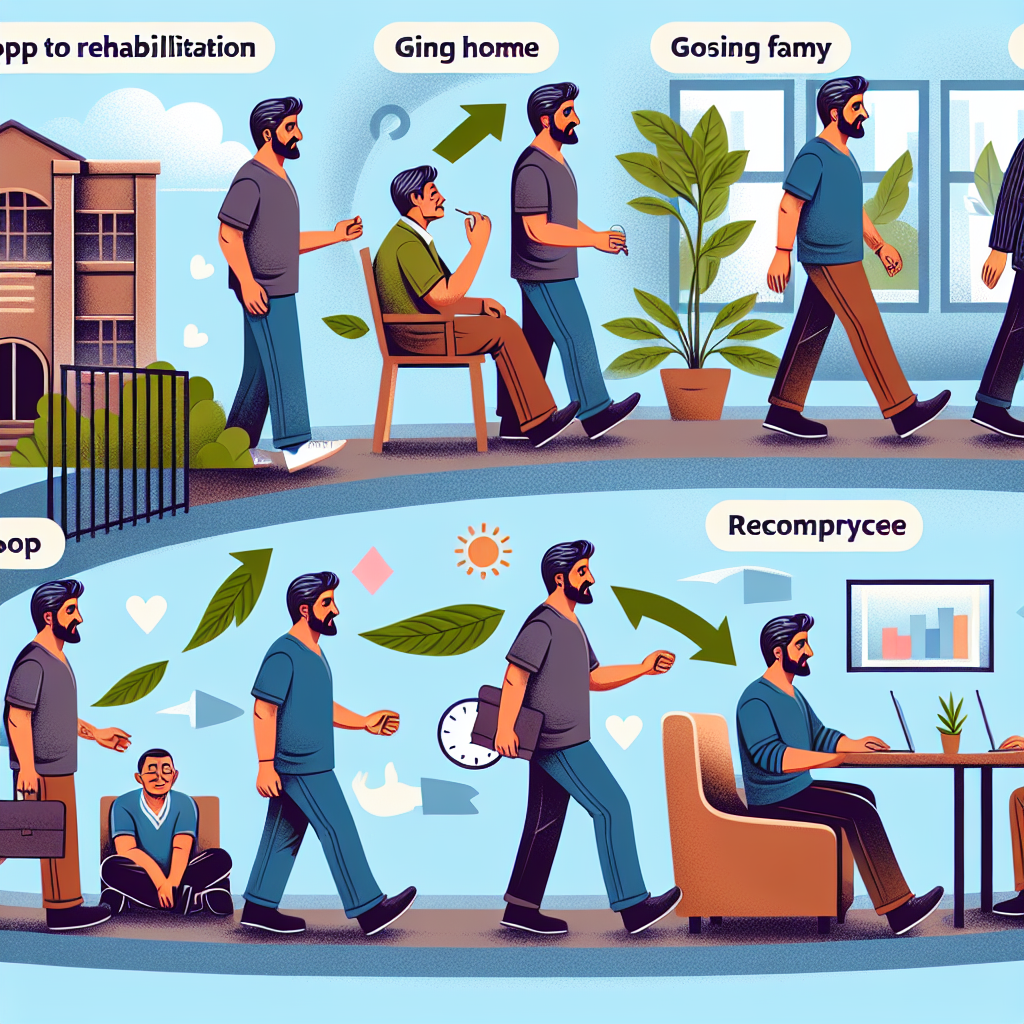-
Table of Contents
“Rebuilding Bonds: Navigating Relationships Through and Beyond LSD Addiction Recovery”
Introduction

Navigating relationships during and after LSD addiction recovery is a complex and multifaceted journey that requires understanding, patience, and effective communication. The process of overcoming addiction to LSD, a powerful hallucinogen, often involves significant personal transformation and emotional healing. As individuals work towards sobriety, they must also address the impact of their addiction on their relationships with family, friends, and partners. Rebuilding trust, setting healthy boundaries, and fostering supportive environments are crucial steps in this process. Additionally, both the recovering individual and their loved ones need to educate themselves about the nature of addiction and recovery to better support each other. By prioritizing open dialogue and mutual respect, it is possible to repair and strengthen relationships, creating a foundation for a healthier, more connected future.
Rebuilding Trust with Loved Ones Post-LSD Addiction
Rebuilding trust with loved ones after overcoming LSD addiction is a journey that requires patience, understanding, and consistent effort. The path to recovery is often fraught with challenges, but the process of mending relationships can be equally demanding. However, with dedication and a genuine commitment to change, it is possible to restore the bonds that may have been strained or broken during the period of addiction.
One of the first steps in rebuilding trust is acknowledging the impact that addiction has had on your relationships. This involves taking full responsibility for your actions and understanding the hurt and disappointment that your loved ones may have experienced. By openly admitting your past mistakes and expressing sincere remorse, you lay the groundwork for healing. It is important to communicate your commitment to recovery and your desire to make amends, which can help to reassure your loved ones of your intentions.
Consistency is key in the process of rebuilding trust. Actions often speak louder than words, and demonstrating your commitment to sobriety through consistent behavior is crucial. This means adhering to your recovery plan, attending therapy sessions, and avoiding situations that may trigger a relapse. By showing that you are serious about your recovery, you can gradually rebuild the confidence that your loved ones have in you.
Open and honest communication is another essential component of rebuilding trust. Keeping your loved ones informed about your progress, challenges, and feelings can help to foster a sense of transparency and mutual understanding. It is important to listen to their concerns and validate their feelings, even if it is difficult to hear. This two-way communication can help to bridge the gap that may have developed during your addiction and create a foundation for a healthier relationship.
In addition to communication, setting realistic expectations is vital. Rebuilding trust is a gradual process, and it is important to recognize that it will take time. Your loved ones may need time to heal and may not be ready to fully trust you immediately. It is important to be patient and give them the space they need while continuing to demonstrate your commitment to change. Over time, as you consistently show your dedication to recovery, their trust in you will likely grow.
Seeking support from a therapist or counselor can also be beneficial in the process of rebuilding trust. A professional can provide guidance and strategies for navigating the complexities of relationships during recovery. They can help you and your loved ones to communicate more effectively, address underlying issues, and develop healthy coping mechanisms. Family therapy sessions can be particularly helpful in facilitating open dialogue and fostering a sense of unity and support.
It is also important to practice self-compassion and recognize that rebuilding trust is a two-way street. While it is essential to take responsibility for your actions, it is also important to acknowledge your own progress and growth. Celebrate your achievements, no matter how small, and remind yourself that you are on a journey of self-improvement. By cultivating a positive self-image and maintaining a hopeful outlook, you can inspire confidence in your loved ones and reinforce your commitment to recovery.
In conclusion, rebuilding trust with loved ones after LSD addiction is a challenging but achievable goal. Through consistent actions, open communication, realistic expectations, and professional support, it is possible to mend the bonds that have been strained by addiction. By demonstrating your commitment to change and fostering a sense of mutual understanding, you can create a foundation for healthier, more fulfilling relationships. The journey may be long, but with perseverance and dedication, the rewards of restored trust and stronger connections are well worth the effort.
Effective Communication Strategies in Recovery
Navigating relationships during and after LSD addiction recovery can be a complex and delicate process, but effective communication strategies can significantly ease this journey. Recovery is a time of profound transformation, and fostering healthy relationships is crucial for long-term success. Open, honest, and empathetic communication forms the bedrock of these relationships, helping to rebuild trust and understanding.
Firstly, it is essential to acknowledge the impact that addiction has had on relationships. Addiction often leads to broken trust, misunderstandings, and emotional wounds. Recognizing these issues is the first step towards healing. During recovery, it is important to approach conversations with a mindset of empathy and patience. This means actively listening to the concerns and feelings of loved ones without becoming defensive. By validating their experiences and emotions, you create a safe space for open dialogue.
Moreover, setting clear boundaries is a vital aspect of effective communication in recovery. Boundaries help to protect both the individual in recovery and their loved ones. They provide a framework for what is acceptable and what is not, fostering mutual respect. For instance, it might be necessary to establish boundaries around discussions of past behaviors or triggers that could jeopardize recovery. Communicating these boundaries clearly and respectfully can prevent misunderstandings and promote a healthier dynamic.
In addition to setting boundaries, it is crucial to express needs and expectations openly. Recovery is a time when individuals often need additional support, whether emotional, physical, or logistical. Clearly articulating these needs can prevent feelings of frustration or resentment from building up. For example, if you need time alone to attend therapy sessions or engage in self-care activities, communicating this to your loved ones can help them understand and support your recovery journey.
Furthermore, practicing forgiveness, both towards oneself and others, is an integral part of effective communication in recovery. Holding onto past grievances can hinder progress and strain relationships. By embracing forgiveness, you allow yourself and your loved ones to move forward. This does not mean forgetting past mistakes but rather acknowledging them and choosing to focus on the present and future. Communicating this intention can help to rebuild trust and strengthen bonds.
Another key strategy is to engage in regular check-ins with loved ones. These check-ins provide an opportunity to discuss progress, address any concerns, and reinforce positive behaviors. They also demonstrate a commitment to maintaining open lines of communication. During these conversations, it is important to be honest about any challenges or setbacks you may be facing. Transparency fosters trust and allows loved ones to offer the necessary support.
Additionally, seeking professional help, such as family therapy or counseling, can greatly enhance communication during recovery. A trained therapist can facilitate conversations, helping to navigate difficult topics and mediate conflicts. This professional guidance can provide valuable tools and techniques for improving communication and resolving issues constructively.
Lastly, it is important to celebrate successes, no matter how small. Acknowledging and sharing achievements in recovery can boost morale and reinforce positive behaviors. Celebrating these milestones together can strengthen relationships and provide motivation to continue on the path of recovery.
In conclusion, navigating relationships during and after LSD addiction recovery requires a commitment to effective communication. By approaching conversations with empathy, setting clear boundaries, expressing needs openly, practicing forgiveness, engaging in regular check-ins, seeking professional help, and celebrating successes, individuals in recovery can rebuild and strengthen their relationships. These strategies not only support the recovery process but also foster a supportive and understanding environment, paving the way for a healthier and more fulfilling future.
Setting Healthy Boundaries in Relationships After LSD Addiction
Navigating relationships during and after LSD addiction recovery can be a complex and delicate process. Setting healthy boundaries is crucial to ensure both personal well-being and the health of the relationships involved. The journey of recovery is not just about overcoming the addiction itself but also about rebuilding and nurturing connections with others in a way that supports long-term sobriety and emotional stability.
One of the first steps in setting healthy boundaries is to understand the importance of self-care. Recovery from LSD addiction often requires a significant amount of introspection and self-awareness. It is essential to recognize your own needs and limitations, and to communicate these clearly to those around you. This might mean taking time for yourself to attend therapy sessions, engage in mindfulness practices, or simply rest and recharge. By prioritizing self-care, you are better equipped to handle the challenges that come with maintaining healthy relationships.
In addition to self-care, it is important to establish clear and consistent communication with your loved ones. Open and honest dialogue can help prevent misunderstandings and build trust. It is vital to express your feelings and concerns without fear of judgment or rejection. This can be particularly challenging if past behaviors during addiction have strained relationships. However, by demonstrating a commitment to change and a willingness to be vulnerable, you can begin to rebuild trust and foster a supportive environment.
Another key aspect of setting healthy boundaries is learning to say no. During addiction, it is common to develop patterns of people-pleasing or codependency. Breaking free from these patterns requires the courage to assert your own needs and limits. This might mean declining invitations to social events that could trigger cravings or avoiding interactions with individuals who do not support your recovery. While it can be difficult to disappoint others, it is essential to prioritize your own well-being and recovery journey.
Furthermore, it is important to surround yourself with a supportive network of individuals who understand and respect your boundaries. This might include friends, family members, or support groups who are familiar with the challenges of addiction recovery. These individuals can provide encouragement, accountability, and a sense of community. By fostering relationships with those who genuinely care about your well-being, you create a positive and nurturing environment that supports your recovery.
In addition to building a supportive network, it is also crucial to address any unresolved issues or conflicts that may have arisen during your addiction. This might involve seeking professional help, such as therapy or counseling, to work through past traumas or relationship difficulties. By addressing these issues head-on, you can begin to heal and move forward in a healthier and more constructive manner.
Lastly, it is important to practice patience and compassion, both for yourself and for others. Recovery is a lifelong journey, and setbacks are a natural part of the process. It is essential to be kind to yourself and to recognize that progress takes time. Similarly, it is important to extend this compassion to your loved ones, who may also be navigating their own challenges and emotions related to your recovery.
In conclusion, setting healthy boundaries in relationships after LSD addiction is a multifaceted process that requires self-care, clear communication, assertiveness, a supportive network, conflict resolution, and compassion. By prioritizing these elements, you can create a foundation for healthy and fulfilling relationships that support your long-term recovery and overall well-being.
Supporting a Partner Through Their LSD Recovery Journey
Supporting a partner through their LSD recovery journey can be both a challenging and rewarding experience. It requires patience, understanding, and a commitment to fostering a nurturing environment. The path to recovery is often fraught with emotional turbulence, but with the right approach, it is possible to help your partner regain stability and rebuild their life. The first step in this journey is to educate yourself about LSD addiction and its effects. Understanding the psychological and physiological impacts of LSD can provide valuable insights into what your partner is experiencing. This knowledge can help you empathize with their struggles and offer more effective support. Additionally, it is crucial to recognize that recovery is a gradual process, and setbacks are a natural part of it.
Communication plays a pivotal role in supporting your partner. Open, honest, and non-judgmental conversations can create a safe space for them to express their feelings and fears. It is important to listen actively and validate their emotions, even if you do not fully understand them. Encouraging your partner to share their experiences can help them feel less isolated and more connected to you. Moreover, setting healthy boundaries is essential for both you and your partner. While it is important to be supportive, it is equally important to take care of your own well-being. Establishing clear boundaries can prevent burnout and ensure that you are in a better position to help your partner in the long run.
Another key aspect of supporting your partner is to encourage them to seek professional help. Therapy and counseling can provide them with the tools and strategies needed to cope with their addiction and its underlying causes. Supporting their decision to attend therapy sessions and being involved in their treatment plan can demonstrate your commitment to their recovery. Additionally, participating in couples therapy can help address any relationship issues that may have arisen due to the addiction. This collaborative approach can strengthen your bond and promote mutual healing.
Creating a supportive home environment is also crucial for your partner’s recovery. This involves removing any triggers or substances that may tempt them to relapse. Encouraging healthy habits such as regular exercise, a balanced diet, and sufficient sleep can also contribute to their overall well-being. Engaging in activities that promote relaxation and mindfulness, such as yoga or meditation, can help your partner manage stress and anxiety. Furthermore, celebrating small victories and milestones in their recovery journey can boost their morale and reinforce their progress.
It is also important to build a support network for both you and your partner. Connecting with others who are going through similar experiences can provide valuable insights and emotional support. Support groups, both online and in-person, can offer a sense of community and shared understanding. Additionally, seeking support from friends and family can help alleviate some of the emotional burden and provide a broader support system for your partner.
Lastly, maintaining hope and optimism is vital. Recovery from LSD addiction is a long and often arduous journey, but it is possible with perseverance and the right support. Reminding your partner of their strengths and the progress they have made can inspire them to keep moving forward. Your unwavering belief in their ability to overcome their addiction can be a powerful motivator. By fostering a compassionate and supportive environment, you can help your partner navigate their recovery journey and build a healthier, more fulfilling life together.
Q&A
1. **How can one rebuild trust with a partner after LSD addiction recovery?**
– Consistent honesty, open communication, and demonstrating reliability over time are key to rebuilding trust.
2. **What role does therapy play in navigating relationships during LSD addiction recovery?**
– Therapy provides a safe space to address underlying issues, improve communication skills, and develop healthy coping mechanisms.
3. **How can one set healthy boundaries in relationships post-recovery?**
– Clearly communicate personal limits, prioritize self-care, and be assertive about needs and expectations.
4. **What are some common challenges in relationships during LSD addiction recovery?**
– Trust issues, emotional instability, and differing recovery paces can be significant challenges.
Conclusion
Navigating relationships during and after LSD addiction recovery requires a multifaceted approach that includes open communication, setting healthy boundaries, and seeking professional support. Trust-building is essential, as is the need for mutual understanding and patience from both the recovering individual and their loved ones. Engaging in therapy, support groups, and educational programs can provide valuable tools and insights for managing relational dynamics. Ultimately, fostering a supportive and empathetic environment can significantly enhance the recovery process and contribute to the long-term well-being of all parties involved.



